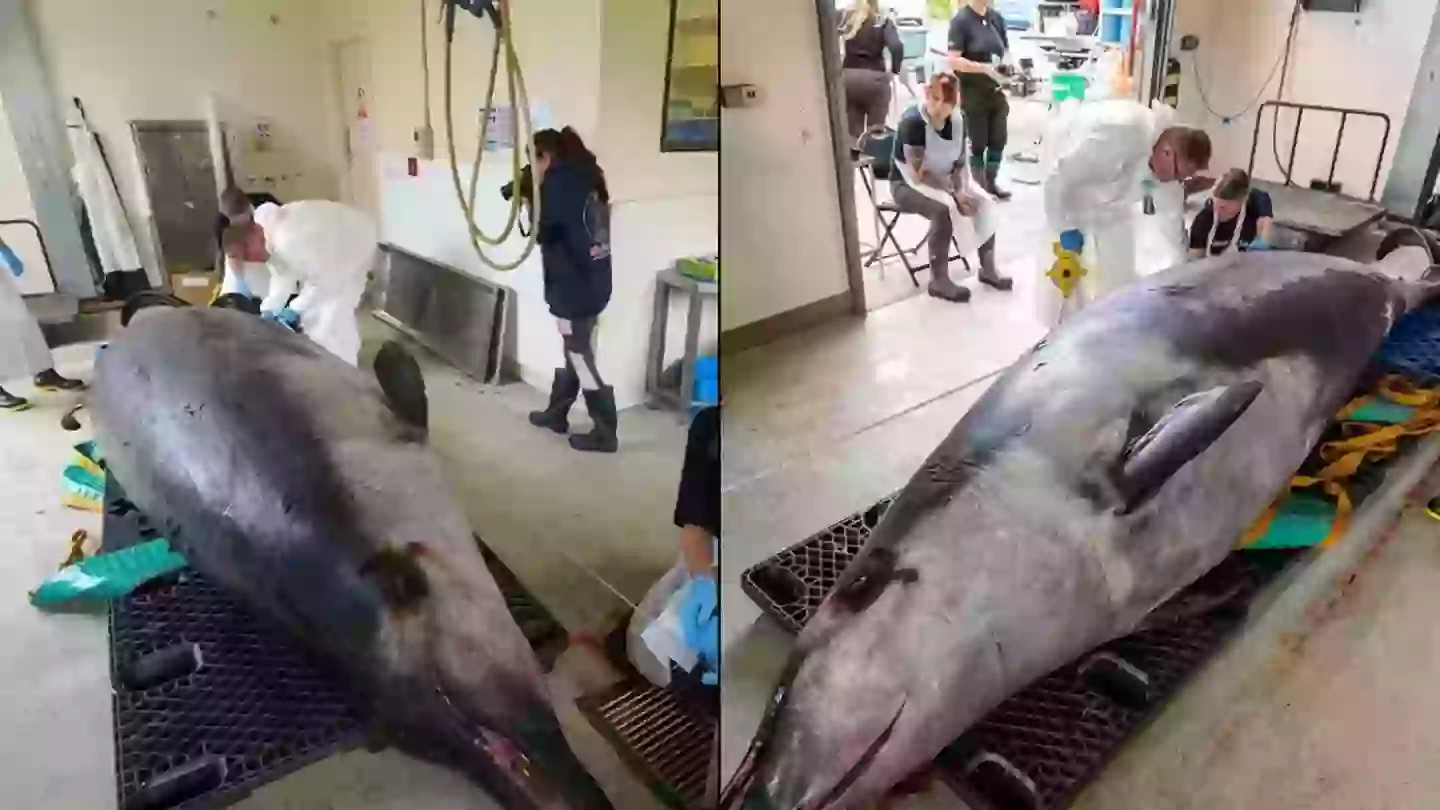
Scientists have been left with a shocking find after opening up one of the world’s rarest whale.
Researchers in New Zealand were delighted to acquire the rare Taoka whale, which is just one of six reported specimens.
The species was first discovered in 1874 and all that they had to go off was a lower jaw and two teeth collected from Pitt Island, Rēkohu.
Advert
Once skeletal remains of two other specimens were found, it allowed scientists to confirm a new species.
Then, two more recent findings helped to allow researchers to describe the colour pattern of the species for the first time.
So, dissecting this one is a big deal.

Beautifully, the rare whale’s name translates to treasure in the language of South Island Māori culture, and it’s spade-teeth is a distinctive characteristic.
Advert
Its official name is mesoplodon traversii, and it is the rarest species of beaked whale ever to be found.
While no one has ever seen one alive, the corpse allows scientists to finally see what’s so different about the whale.
It first washed ashore on Taieri Mouth on 4 July and was put into cold storage until officials knew what to do with the body.
The five-metre male, ended up allowing researchers to find something totally unexpected.
The Department of Conservation in New Zealand’s Rachel Wesley of the Rūnanga Maori assembly shared that this was the first time scientists and natives worked together to gain a deeper understanding of the whale.
Advert
Te Rūnanga ō Ōtakou chair Nadia Wesley-Smith said the rūnaka will partner with DOC to find out what to do with the body.
She said: “It is important to ensure appropriate respect for this taoka is shown through the shared journey of learning, applying mātauraka Māori as we discover more about this rare species.”

What was found was weird and amazing.
When they took a closer look, they found that the whales have tiny vestigial teeth in their upper jaw, which many whales tend to evolve out of as it’s not necessary for survival today.
Advert
They also realised that the whales previously walked on land as well as living in the ocean as it had reduced hind limbs.
Scientists believe these limbs would have been legs around 50 million years ago, but now they’re a tool for sex.
You read that right.
Scientists believe they help improve the thrust.
Another interesting thing to come from the autopsy was that the whale had a whopping nine chambers in the stomach.
Advert
Marine Science Advisor and whale expert Anton van Helden said, as per the Daily Star: "In some of those stomachs we found squid beaks and some lenses from the eyes of squid, a few parasitic worms, and maybe some other parts of organisms that we are not quite sure of.
“We have a parasitologist who will study them to find out what they are.
DOC Coastal Otago Operations Manager Gabe Davies said in a statement: “Spade-toothed whales are one of the most poorly known large mammalian species of modern times. Since the 1800s, only 6 samples have ever been documented worldwide, and all but one of these was from New Zealand. From a scientific and conservation point of view, this is huge.”
Topics: Animals, Science, Weird, World News
